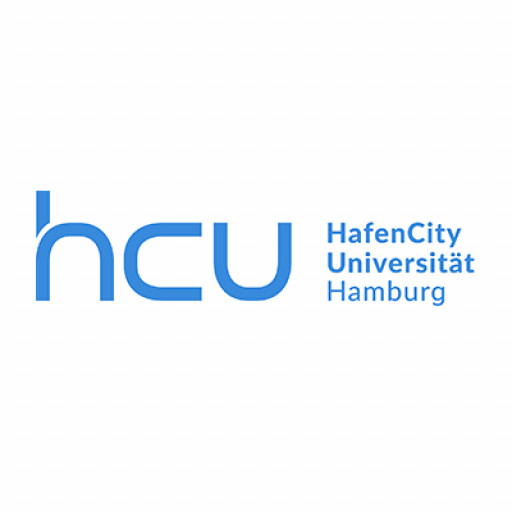Photos of university / #radboud_uni
This Bachelor's programme in Human Geography at Radboud University offers students a comprehensive understanding of the complex relationship between human societies and the environments they inhabit. Designed to explore spatial patterns and processes, the programme combines theoretical insights with practical skills to analyze issues related to urban development, migration, cultural landscapes, sustainability, and regional planning. Students will investigate how economic, political, social, and environmental factors influence the way people interact with their surroundings and how these interactions shape the physical and social landscape. The curriculum emphasizes interdisciplinary approaches, encouraging students to develop critical thinking skills and to apply geographical concepts to real-world problems through case studies and fieldwork. Throughout the programme, students gain expertise in qualitative and quantitative research methods, data analysis, and geographic information systems (GIS), equipping them to assess spatial phenomena accurately. The programme also fosters an awareness of global challenges such as climate change, urbanization, and social inequality, preparing graduates for careers in policy-making, urban planning, environmental consultancy, and international development. With a strong international outlook, students have opportunities for exchange programmes and internships, gaining valuable practical experience and international perspectives. Radboud University's Human Geography programme emphasizes a student-centered learning environment, promoting active participation, critical reflection, and collaborative projects. Graduates will be well-equipped to analyze geographic issues from multiple viewpoints, communicate findings effectively, and contribute to sustainable development and social justice initiatives worldwide.
The Master's programme in Human Geography at Radboud University offers students an in-depth exploration of the complex relationships between humans and their environments across local, regional, and global contexts. This programme is designed to provide a comprehensive understanding of geographical processes, societal issues, and the spatial dimensions of human activity. Throughout the course, students will examine topics such as urban development, migration, globalization, environmental challenges, and spatial planning, utilizing both qualitative and quantitative research methods. The curriculum emphasizes critical thinking and analytical skills, enabling students to assess diverse perspectives and develop innovative solutions to societal problems. Students have the opportunity to specialize in areas such as urban and regional planning, sustainable development, or social geography, tailoring their studies to their interests and career goals. The programme combines theoretical frameworks with practical applications, including case studies, fieldwork, and internships, fostering real-world experience. Additionally, students will engage with current geographical issues through research projects and collaborations with local communities and organizations. The teaching staff comprises experienced researchers and practitioners who bring a wealth of knowledge and expertise to the classroom. Graduates of this master's programme are well-equipped for careers in academia, public policy, urban planning, environmental consultancy, and international development, among others. The programme also serves as a solid foundation for doctoral studies in geography or related disciplines. With its interdisciplinary approach, strong emphasis on research skills, and focus on societal relevance, the Human Geography programme at Radboud University prepares students to contribute thoughtfully and effectively to addressing the pressing geographical challenges of our time.
Admission to the Master's Programme in Human Geography at Radboud University requires candidates to hold a Bachelor's degree in a relevant field, such as Human Geography, Geography, Social Sciences, or a related discipline. Applicants must demonstrate sufficient academic achievement, typically reflected in a minimum GPA or equivalent. Proficiency in English is mandatory, with accepted standardized test scores including TOEFL (minimum score of 90), IELTS (minimum score of 6.5), or Cambridge certificates, ensuring that students can engage fully with the curriculum and communicate effectively in an international academic environment. Additionally, candidates are expected to submit a motivation letter explaining their interest in the programme and their professional aspirations, along with a curriculum vitae detailing their academic background and relevant experiences. Some applicants may be required to attend an interview or provide references to assess their suitability for advanced study in human geography.
Candidates with a background in related fields such as urban planning, environmental sciences, sociology, anthropology, or economics may also be considered, provided they can demonstrate their motivation and academic preparedness. The university values diversity and considers extracurricular activities, internships, and research experience as positive indicators of a candidate's capability and commitment to the field. International students must ensure they meet Dutch visa requirements and provide all necessary documentation within specified deadlines. It is advised to review the specific entry requirements listed on the official Radboud University website and ensure compliance with application procedures and deadlines. The programme aims to admit students with a strong academic record, clear motivation, and the potential to contribute to the field of human geography through research and practical application.
The Human Geography master’s program at Radboud University offers various financing options for both Dutch and international students. Tuition fees for this program are set annually and vary depending on the student's nationality. For EU/EEA students, the standard tuition fee is approximately €2,220 per year, while non-EU/EEA students are typically required to pay higher fees, around €13,600 per year. These fees cover the full duration of the two-year master’s program.
Students are encouraged to explore governmental grants and loan schemes available through Dutch student finance institutions. Dutch students may qualify for loans, grants, or loan guarantees provided by DUO, the Dutch government’s organization for student financing. International students can seek scholarships and funding opportunities through Radboud University’s own scholarship programs, such as the Radboud Scholarship Programme, which provides partial fee waivers to outstanding international applicants. Additionally, students from certain countries may be eligible for bilateral agreements or specific scholarship schemes like Erasmus+ for students from European partner countries.
Apart from scholarships, students can also consider private funding sources, including government or private sector grants, and loans available in their home countries or through international organizations. Radboud University provides comprehensive financial advising services to help students identify suitable funding opportunities, plan their finances, and navigate application procedures.
Students are also advised to account for living expenses, which vary depending on the city of Nijmegen. On average, students should budget approximately €800 to €1,200 per month for accommodation, food, transport, insurance, and other personal expenses. Many students offset these costs through part-time jobs, either on or off campus, subject to visa regulations for international students.
In conclusion, financing a Human Geography degree at Radboud University involves a combination of tuition fees, scholarships, government loans, personal savings, and potentially part-time employment. Prospective students are encouraged to apply early for scholarships and to consult the university’s financial aid office to optimize their funding options.
Human Geography at Radboud University is a comprehensive Bachelor's degree program designed to explore the complex relationship between humans and their environments. This program emphasizes understanding social, cultural, economic, and political processes that shape geographical spaces and communities worldwide. Students will gain insights into urban development, migration, globalization, and sustainability issues, coupled with practical research skills and critical thinking abilities. The curriculum combines theoretical knowledge with applied projects, often involving fieldwork, data analysis, and case studies. Radboud University highly values an interdisciplinary approach, encouraging students to integrate perspectives from sociology, anthropology, economics, and environmental science. The program aims to prepare graduates for diverse careers, including urban planning, policy analysis, international development, environmental consultancy, and research roles. Faculty members are experts in their fields who provide personalized mentorship and innovative teaching methods. The university's strong links with governmental organizations, NGOs, and industry partners offer students opportunities for internships and real-world experience. Moreover, the program promotes global citizenship and ethical considerations, emphasizing sustainable development and social justice. Students are encouraged to engage in international exchanges and collaborative projects, enhancing their global outlook and intercultural competence. The program is taught in English, attracting international students from around the world, fostering a vibrant, diverse academic community. Graduates of the Human Geography program at Radboud University are well-equipped with analytical skills, cultural awareness, and practical knowledge to address pressing societal challenges and contribute to sustainable development initiatives worldwide.









